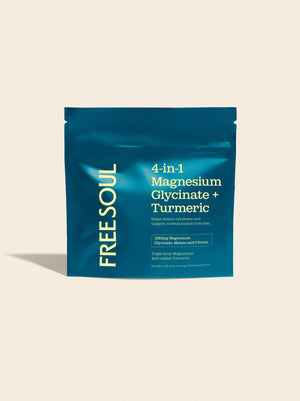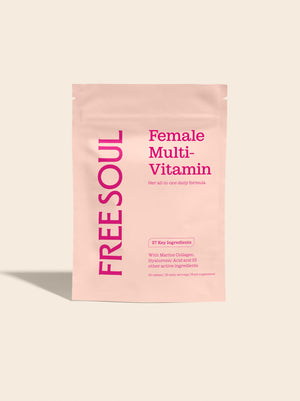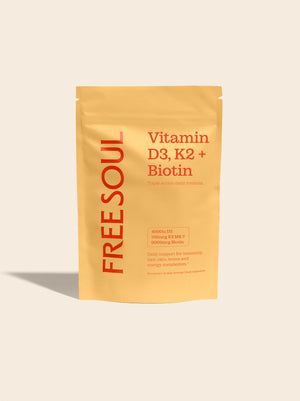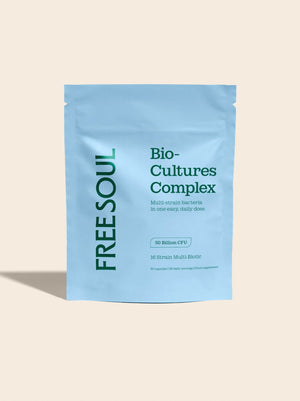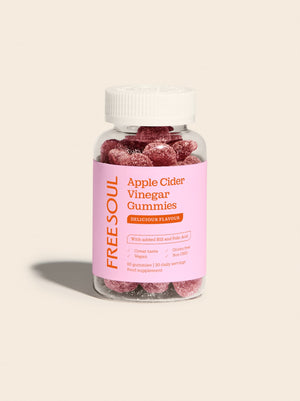The environmental impact, kindness towards animals, and health benefits – these are some of the most common reasons that people become increasingly, or entirely, plant-based. However, the information around the benefits is often scattered, so let's break down each of these reasons into the facts to help you answer whether or not you should consider becoming more plant-based.
The Environmental Impact
The meat industry has a colossal impact on the environment – it requires a massive amount of land which often results in deforestation, devours more water than any other food group, and increases greenhouse gas emissions through methane excreted by animals.
The level of damage created by the meat industry is incomparable to any other food group. However, there are some factors you should consider when buying plant-based produce.
While purchasing plant-based foods does have a significantly lower environmental impact, there are still factors to be mindful of – the most important of which is to buy local whenever possible. Studies have found that air transported fruit & veg can create as many greenhouse gases per kg as poultry!
Without considering the entire supply chain of the ingredients we buy, it is easy to have an unintended impact on the environment. So, while becoming more plant-based is a fantastic choice to make for the environment, it is vital to remain mindful about where our food comes from.
The Human Health Impact
Is becoming more/entirely vegan a magical solution to optimal health? Unfortunately not. Can it help you to become healthier? It absolutely can, and there are a few noteworthy points to make to ensure you are feeding your body with everything it needs!
The data reveals that vegan diets tend to be lower in calories, saturated fats, and cholesterol, and tend to be higher in dietary fibre and a mix of vitamins and minerals. However, the data also shows that following a vegan diet will require you to pay special attention to getting enough of the following in your diet: Vitamin B12, Vitamin D, Calcium, and Zinc.
When you examine the impact of the above, according to The American Journal of Clinical Nutrition, "a vegan diet appears to be useful for increasing the intake of protective nutrients and phytochemicals and for minimising the intake of dietary factors implicated in several chronic diseases". Also, the WHO found a higher intake of fruits & vegetables (often the case with a vegan diet) reduced the risk of cancer.
The impact on cardiovascular health is just as positive – a vegan diet is associated with lower levels of LDL cholesterol, resulting in lower blood pressure & a lower risk of strokes & heart attacks. It's due to vegans, when compared to omnivores, consuming significantly larger volumes of fruit & vegetables.
A study on Asian Women, who reduced their consumption of meat & dairy for religious reasons, found that they were at greater risk of developing weakness in their bones due to sub-optimal consumption levels of protein & calcium. It demonstrates the importance of conscious eating when you are plant-based, to ensure that you are consuming enough of all the various food groups to support your health.
In summary, a plant-based diet comes with a plethora of environmental & health benefits. However, to avoid an unintended negative impact on the environment, it is essential to remain mindful of the supply-chain involved in each ingredient – shop local wherever possible to reduce the "air-miles" involved in sourcing your food. Further, when following a plant-based diet, you need to be conscious of consuming enough of the below.
1. Vitamin B12 – while leafy vegetables and soy products do contain B Vitamins, nutritionists often recommend opting for a Vegan B12 Supplement to ensure you are consuming a reliable source of active B12
2. Calcium – although traditional Vegan calcium sources such as leafy veg & tofu do contain calcium, top up your intake with calcium-fortified foods to ensure you are getting enough in your diet (e.g. the Free Soul Vegan Protein Blends – fortified with B12, Calcium, and more)
3. Vitamin D – especially if you live in the UK or other countries where sunlight is limited. Top up your Vitamin D intake with orange juice, breakfast grains, and plant-based milk. Alternatively, top up with a Vitamin D supplement.
4. Fatty Acids – a vegan diet should include lots of plant-based foods that are rich in fatty acids, such as flaxseed, walnuts, and hemp seed.
5. Zinc – a vegan diet often involves high phytate contents, so make sure you are getting enough zinc in your diet through the consumption of whole grains & legumes.
By the end of reading this, perhaps you've decided to increase the extent to which you eat plant-based foods. But how do you put this into practice, and where do you begin? More on this tomorrow, in our final email of this series.
Yours,
Team Free Soul
**At Free Soul, your wellbeing is our priority, and although we pride ourselves on our expertise in women's health and wellbeing, it is important to acknowledge the individuality of each person. Features published by Free Soul are not intended to treat, diagnose, cure or prevent any disease, or replace the advice of your GP. We always recommend consulting with a healthcare provider if you encounter any health concerns, and we’ll always be here to support you so you’re never alone on your journey.
Enter your number below to always be the first to know about our deals!
* I consent to receive recurring automated marketing by text message through an automatic telephone dialing system. Consent is not a condition to purchase. STOP to cancel, HELP for help. Message and Data rates apply. View Privacy Policy & ToS.


